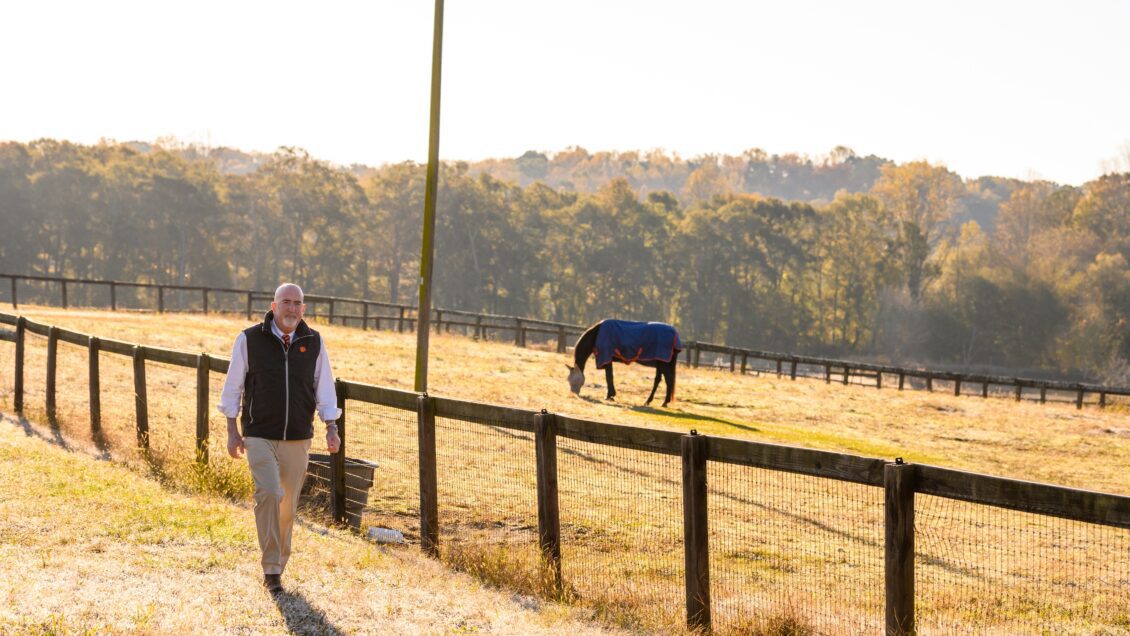There has never been a better time to establish a new College of Veterinary Medicine (CVM) in South Carolina. The human-animal bond is profound and unique, and with the changing face of animal agriculture, efforts to capture the new College’s mission and vision are more important than ever.
Building the CVM team
The College of Veterinary Medicine plans to welcome its first class of veterinarians in 2026 upon receiving provisional accreditation. Dr. Steven Marks, the College’s founding dean, continues leading the team in hiring faculty and finalizing plans for state-of-the-art facilities and a rigorous curriculum.
“Our goals are to provide an exceptional student experience in a challenging, nurturing and values-driven environment to produce prepared veterinarians from Day One,” said Marks. “In the companion animal world, the human-animal bond has a very positive and important impact on the physical and mental health of their human families. In the large-animal and production animal world, there are still important impacts of the human-animal bond, but there are also important public health, food safety and economic impacts in the state.”
Need for South Carolina veterinarians
Clemson studied the need and found that a third of South Carolina counties have fewer than five veterinarians. Additionally, qualified candidates are applying to veterinary colleges, yet there needs to be more seats nationwide to accommodate students’ desire to become veterinarians.
According to Dr. Michael J. Neault, the South Carolina state veterinarian and Clemson’s director of Livestock-Poultry Health, there is a particular need for large-animal practitioners.
“Right now, agribusiness is the largest industry in the state, and that field needs veterinarians,” said Neault. “I’m excited about what’s going on at the College, and this is a great opportunity for the state of South Carolina to train and retain its veterinarians. This is a win-win for the field of veterinary medicine and the state.”
Positively impacting public health
Veterinarians are key to monitoring the animal population for a variety of illnesses. When animals are healthy, communities thrive.
“The training of veterinary clinicians and scientists can impact public health in many ways,” said Marks. “Public health can be impacted by promoting and protecting the human-animal bond but can also be related to food safety and infectious disease management.”
A variety of career opportunities
There are many career opportunities within the field of veterinary medicine. Students can work in private practices treating large and small animals and pursue a focus on clinical and scientific work.
“Veterinary medicine is a popular career, and we hope that will bring more people to the state,” said Neault. “From there, we hope people will stay and practice in the state. The animal-human bond is extremely important. Animals are our pets and companions, and they are livestock as well. There is this drive to care for the animals in our lives, and Clemson’s College of Veterinary Medicine is a key piece of this equation.”
The journey is just beginning
The College of Veterinary Medicine is uniquely positioned to support Clemson’s land-grant mission.
“The land-grant mission is to teach and educate, conduct research, and provide service to the community,” said Marks. “The College of Veterinary Medicine will contribute in each of these areas.”

Get in touch and we will connect you with the author or another expert.
Or email us at news@clemson.edu

